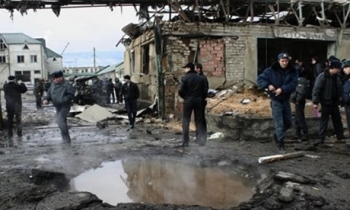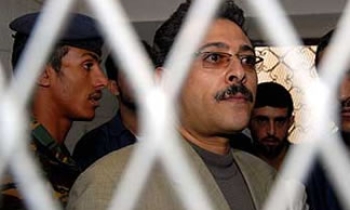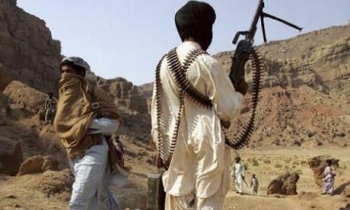The private print media in Burma is outpacing its public counterpart and registering enormous growth. Yet, instead of encouraging cooperation in the business of informing and entertaining news-thirsty readers, the government is practically choking these independent outlets, says a Mizzima News report.
There are unwritten rules that have been practised by the junta since the 1962 coup that ended democratic governance:
- The government does not want controversial subjects to be discussed among the public. Therefore, it censors such items as "not newsworthy".
- The Office of Scrutiny does not engage in dialogue with any public or private organisation over published items.
- Critical thinking about Burma is ignored by the government. In an attractive market, the military government continues to suppress the growth of private news publications, while claiming that it has granted more journal publishing licenses. But this increase in licensure is measured in quantity, not quality.

According to the Mizima report, the country's Ministry of Information has so far granted 270 publishing licenses — 120 for weekly newspapers and 150 for monthly magazines. Out of weekly papers, according to the government's Office of Press Scrutiny, 21 are for general news journals. However, with the number of private news journals on the rise and a population of 55 million, the country is increasingly relying on independent papers rather than the state-run media to stay informed, even though the quality of local journalism is not quite up to the mark.
Growing competition has weeded out the weaker journals and led to better standards in the industry, say some analysts, adding that this is a sign of a market-focused economy. More than 30 companies have already surrendered their publishing licences in the last nine months alone, due to lack of technical knowhow and poor financing.
The government's cooperation with private news journals has been increasing of late, with reporters from private journals being allowed to cover state news conferences. Previously, only foreign correspondents and state-owned news agencies were invited. However, in one instance, the government banned a senior journalist with the Myanmar Times, a privately owned weekly, from attending state-sponsored press conferences after he raised some probing questions at a conference held in November 2006.
Criticism of private journals is still widespread and the quality of reporting in many falls far short of the public's expectations, the Mizzima report says. However, this is not necessarily due to the performance of journalists working with the publications concerned, but rather heavy censorship of the government's Office of Press Scrutiny. The office's stand effectively kills the talent of newer professionals in the industry, turning a blind eye to the industry's development mantra: "The more flexible censorship is, the better the media industry will be able to operate."
News reports are expected to benefit both the government and the public. In practice, it is mainly the junta which benefits, resulting in deteriorating trust between the government and the public, an alarmingly obstructive factor in the country's progress. The government sometimes also blocks information to protect its image, regardless of the interests of citizens. Yet a protected image is nothing amid an increasingly interconnected world.
Mizzima News Agency was awarded the 2007 Free Media Pioneer Award by the International Press Institute (IPI), the global network of editors, media executives and leading journalists. Mizzima News was founded in August 1998 by a small group of Burmese journalists in exile with the declared aim of “promoting awareness about the ongoing situation in Burma and promoting democracy and freedom of expression in Burma by improving the flow of information in and out of the country and through advocacy and lobbying.” Today, it has a head office in New Delhi, India, as well as a news bureau in Thailand, and a team of some 30 employees, including Burmese and foreign journalists, in Bangladesh, Burma, China, India and Thailand.









